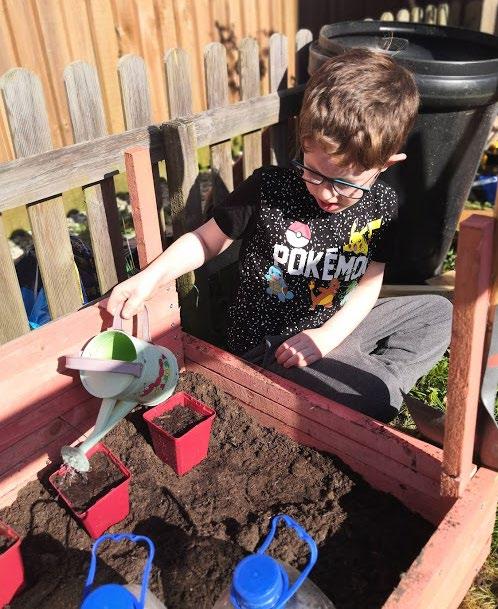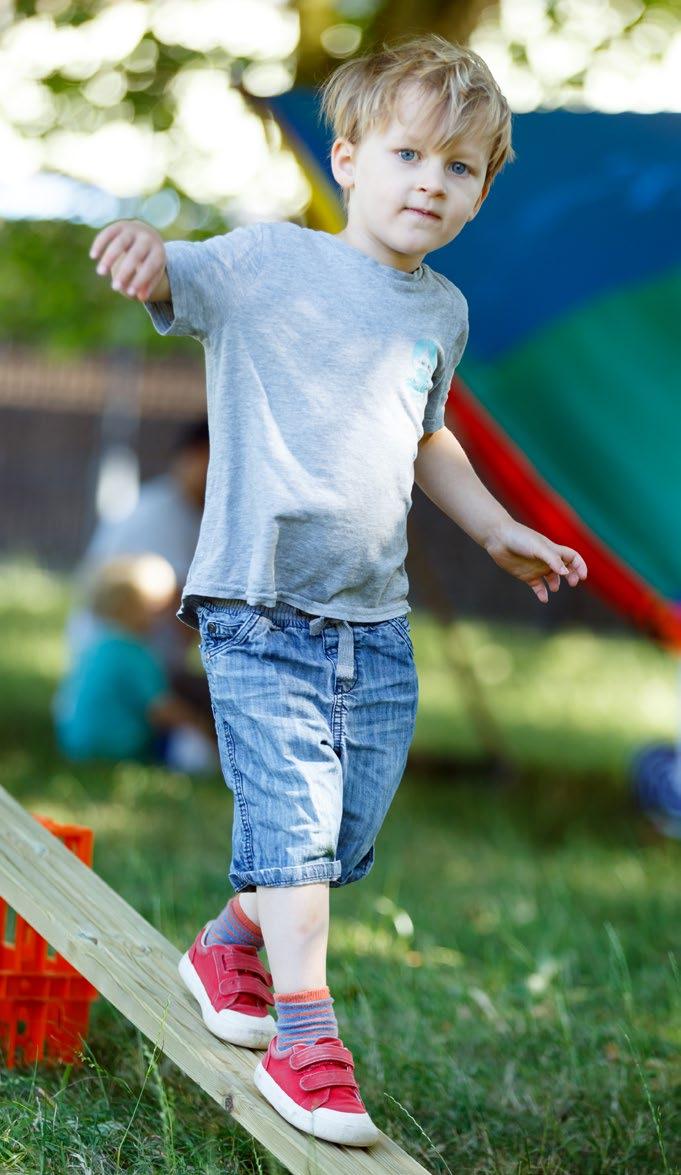Play for Wales | Spring 2020 | 9
How playing contributes to children’s physical well-being:
How playing contributes to children’s emotional well-being:
• Prolonged and wide-ranging physical activity develops stamina (informal sports, chase games, climbing, building). Research suggests that children can gain more physical exercise in regular informal play than in a weekly sports activity.
• Creating and encountering risky or uncertain play opportunities develops children’s resilience and adaptability – and can contribute to their confidence and self-esteem.
• Climbing develops strength, co-ordination and balance, while jumping contributes to bone density. • When children repeat an action as part of their play they are often in the process of calibrating – learning to manage growing bodies – as well as developing agility, co-ordination and confidence.
• Fantasy play allows for imagination and creativity, but it can also be a way of children making sense of and ‘working through’ difficult and distressing aspects of their lives. • Socialising with their friends on their own terms gives children opportunities to build emotional resilience, to have fun and to relax.
These resources are freely available on our website:
• Play: mental health and well-being.
• Play: health and well-being
For information to support parents visit our Playful Childhoods website: www.playfulchildhoods.wales
• Playing actively in and around the home
Playing and resilience Resilience is often defined as how well we respond and adapt to events and experiences in our lives – both the good ones and the very challenging and worrying ones. It is well-established that children’s play provides a primary behaviour for developing resilience, thereby making a significant contribution to children’s well-being. Across several literature reviews, Stuart Lester and Wendy Russell note that evidence suggests that play contributes to developing resilience through a number of interrelated systems including: • Emotional regulation
play help make the case that playing is an important element in helping to build resilience. Having enough time, space and permission to play helps children to: • Develop a sense of self sufficiency and independence • Feel that they have a sense of control in their world • Feel connected to others and their community
• The stress response system and the ability to respond to uncertainty
• Experience a range of emotions including frustration, determination, achievement, disappointment and confidence, and through practice, can learn how to manage these feelings
• Creativity and the ability to make new and different connections
• Develop imagination and creativity
• Learning • Problem solving.
• Make sense of and ‘work through’ difficult and distressing aspects of their lives.
The generally accepted social, physical and cognitive benefits of
Play has specific features that allow children to try out, in relative safety,
• Pleasure and enjoyment of promotion of positive feeling
• Attachment to people and place
new strategies and solutions to challenges. Play promotes both physical and emotional flexibility through the rehearsal of new and unexpected behaviours and situations. Play is a key mechanism for developing resilience and dealing with stress and anxiety. It provides effective strategies for dealing with uncertainty and contributes to good physical and mental health. A child who has developed their resilience can respond and adjust more effectively to difficult circumstances. They are more able than other children to overcome adversity, and of course what we adults do to help them on the way is vitally important. For more about play and resilience, read our Building resilience – the importance of playing information sheet: www.playwales.org.uk/eng/ publications/informationsheets









